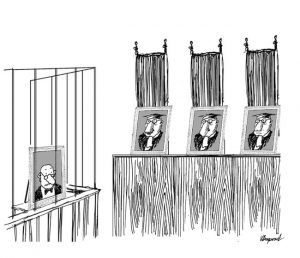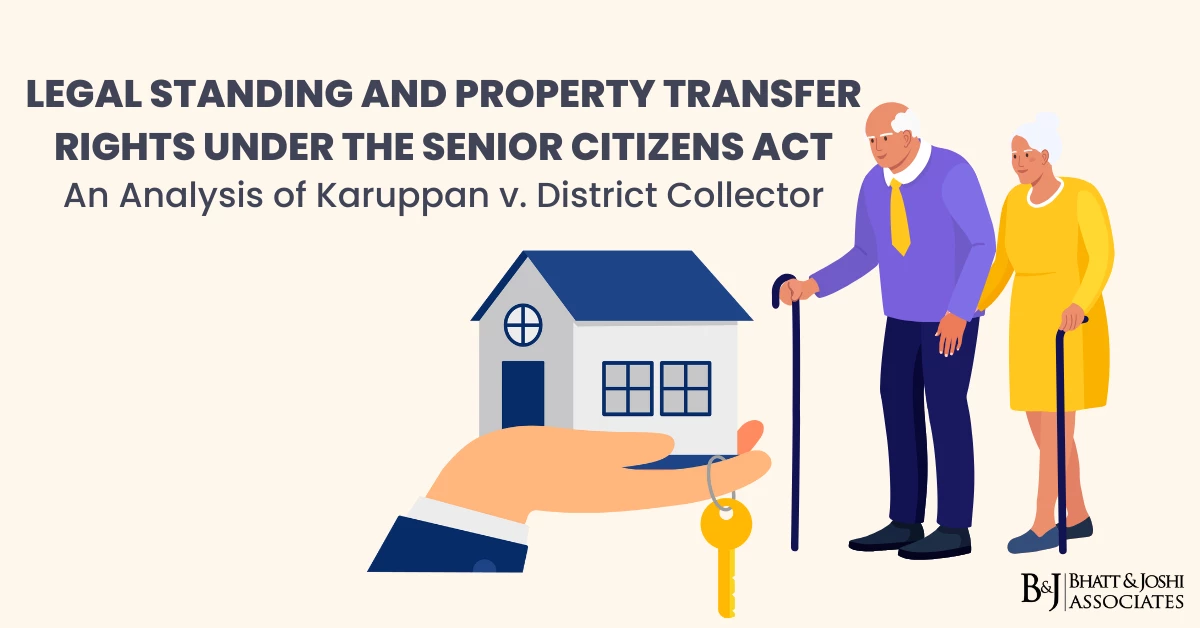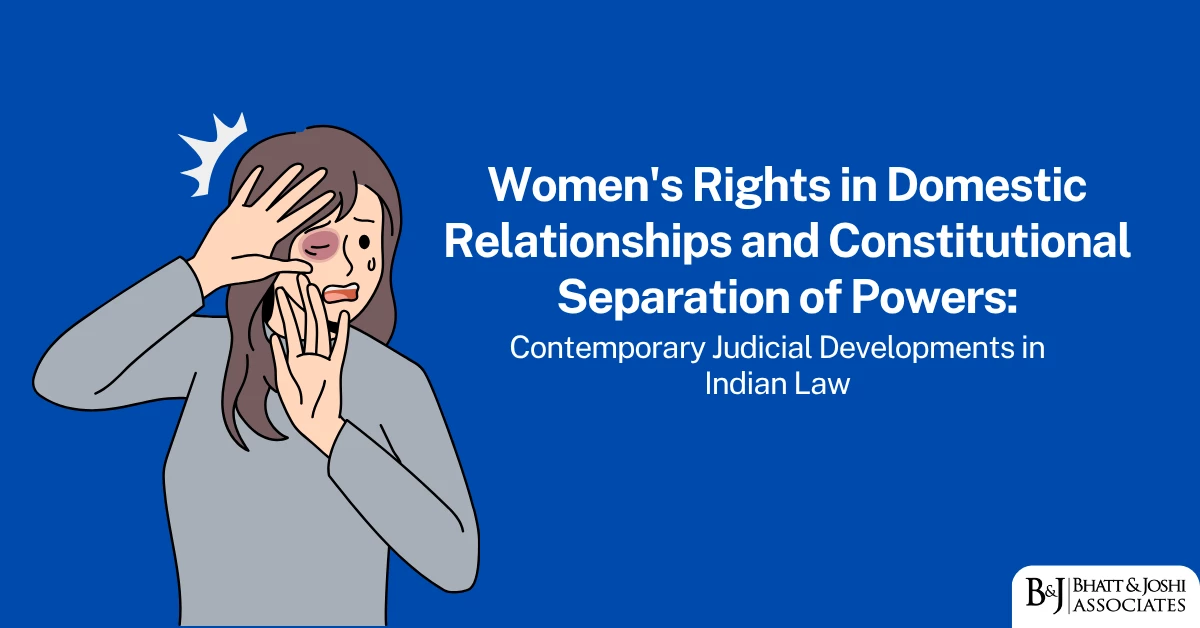Introduction
The cornerstone of the criminal justice system is allowing the accused their right of being present during the criminal trial so that they are aware of the charges levied against them and hence, enable them to seek defense. In furtherance of granting the accused their right to undergo a fair trial, Criminal Procedure Code makes elaborate provisions at different stages of inquiry and trial, as to allow the accused an opportunity of being heard.

Trial “in absentia” (Latin for “in the absence”) is when the proceeding is continued in the absence of the accused, under certain circumstances. One of the first instances of conducting a trial in absentia was seen in the Nuremberg trial after World War II, which permitted trials in absence of the accused whenever the Tribunal found them necessary in the interests of justice. In a situation whereby the accused does not appear, the process is issued against the non-appearing accused. If it is proven that the accused has absconded (ie., left a jurisdiction secretly or suddenly to avoid arrest or prosecution) and that there is no immediate ground for his arrest, the court vests the power to draw a proceeding under Section 299 CrPC and record the evidence of the witnesses in absence of the accused.
As highlighted by Maurice Meli, the right of an accused to be present at his or her trial is not absolute and may be subject to certain exceptions. The right of being heard is not an absolute right and is subject to exceptions under Sections 205, 291, 292, 293, 299, and 317 CrPC. In lieu of other exceptions, reference can also be made to Sections 32 and 33 of the Evidence Act and Section 17 of the Extradition Act. It is pertinent to note that despite the power of the court to continue the proceedings, however, the evidence so recorded does not finally dispose of the cases against the absconding accused, but is kept on record till the arrest or surrender of the absconding accused irrespective of the fact whether the accused is arrested after a long gap or is not arrested at all. If the appearance of the absconding accused is secured, the evidence recorded cannot be used unless and until the witness has died or his appearance cannot be secured without undue delay.
Judicial Precedents
A close examination of the delays can reveal a pattern of blatant misuse of the provisions by the accused persons to delay and scuttle criminal trials.
Several Reports of the Law Commission of India, such as the 177th and the 239th Law Commission Reports, have echoed the concerns of absconding accused and have regarded it as one of the biggest impediments in the speedy trial, in particular, and the criminal justice system, in general. As aptly noted by the Supreme Court in Surya Baksh Singh v St of UP, 2014, there is a concerted effort to delay the adjudicatory process by the accused persons, and recently, the dilatory tactics adopted in the Nirbhaya case, even after the final disposal of the appeals by the Supreme Court and of the mercy petitions by the President of India reflects and confirms the trend.
As set out in Jayendra Vishnu Thakur v. State of Maharastra, 2009, the right to a fair trial hasn’t been accepted as a fundamental right within the meaning of Article 21 of the Constitution of India by the Indian courts, yet and so in the absence of an express provision in our constitution, we have to view the premise that this right is only a statutory one.
No International Charters like ICCPR or ECHR prohibits conducting a trial in the absence of the accused, but only The Special Tribunal for Lebanon contains a statute that explicitly permits trials in absentia. Article 22 of the Statute titled “Trials in absentia” laid down three circumstances under which in absentia proceedings can be conducted, (i) where the accused has expressly or in writing waived his right to be present, (ii) where he has not been handed over to the Tribunal by the concerned State authorities and (iii) where he has absconded or can otherwise not be found and all reasonable steps have been taken to secure his appearance before the Tribunal.
As opined in Hussain v. Union of India, 2017 and reiterated by the Supreme Court in Bachche Lal Yadav v. Akhand Pratap Singh, 2016, in a case where after the production or appearance of an accused before the Court or his release on bail, the accused person absconds or fails to appear, the procedure as laid down in sub-section (1) shall not apply and the Court competent to try such person for the offense complained of shall, recording its decision so to do, try such person in his absence.
In R v. Jones (Robert) (No. 2), the House of Lords laid down the principles which should guide the courts in relation to the trial of the defendant in his absence and pronounced that, “if the accused during the trial absents himself from court voluntarily, however, as, for example, by escaping from custody or failing to surrender to custody whilst on bail, the Judge, in his discretion may allow the trial to continue; and, if the accused is convicted, the Judge may sentence him in his absence.”
Conclusion
The net result is that once the accused absconds, the criminal proceeding goes in limbo and the criminal trial cannot crawl forward, the charge cannot be framed, evidence cannot be recorded, statements under Section 313 CrPC cannot be recorded, defense evidence cannot be recorded and judgment cannot be delivered. The entire process of criminal adjudication goes into hibernation till the arrest of the accused. This is how offenders of serious offenses, be it million dollars financial fraud cases, murder cases, and sexual assault cases, the accused is able to evade adjudication and the entire adjudicatory process precariously remains poised at the will of the accused to appear before the court.
The main and primary reason why the trial courts are not very liberal in granting bail is the apprehension of the accused absconding trial. One of the several advantages of the proposed amendments is that once there is a provision in place enabling a court to proceed against a wilful absconder the courts will be more forthcoming in granting bail in appropriate cases. The accused being aware of the consequence of his absconding leading to trial in absentia will be less likely to misuse bail and put up his defense during trial instead of absconding from it.
Written by Parthvi Patel, student at United World School of Law.











